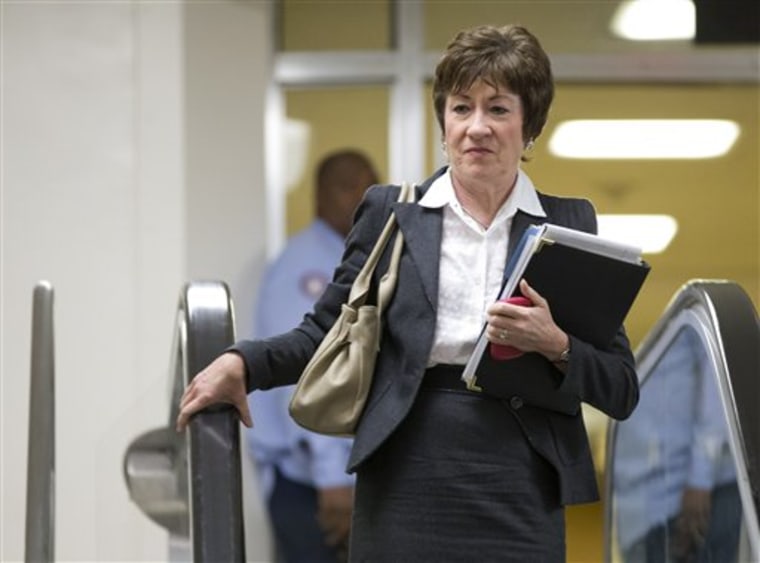To a significant degree, Supreme Court Justice Brett Kavanaugh's fate was in Sen. Susan Collins' hands. Over the course of many years, the Maine Republican has cultivated a reputation as Congress' most influential moderate, and given the circumstances, and her professed uncertainty, it seemed plausible that she'd balk at the nominee.
We all know, of course, that Collins chose a different path. In a lengthy speech on Friday, which guaranteed Kavanaugh's successful confirmation, the ostensible GOP centrist effectively placed a risky bet: Collins insisted that the Republican jurist, all evidence to the contrary notwithstanding, would be far more moderate than everyone in both parties expects.
It was wildly unpersuasive. The Washington Post's Dana Milbank dismissed Collins' decision as "a Declaration of Cowardice." Slate's Mark Joseph Stern made a compelling case that her remarks were "an insult to Americans' intelligence."
But as the dust settled on the dramatic developments, one of the things about Collins' position that stood out was the simple fact that the senator did not believe Dr. Christine Blasey Ford. Collins' floor speech on Friday included a lengthy series of thoughts in which the senator tried to poke holes in the professor's version of events. Collins seemed open to the possibility that Ford was assaulted, but was satisfied that Kavanaugh was not responsible.
Reflecting on her decision on some of the Sunday shows yesterday, she echoed the conclusion. "I do not believe that Brett Kavanaugh was her assailant," Collins told CNN's Dana Bash. "I do believe that she was assaulted. I don't know by whom, and I'm not certain when, but I do not believe that he was the assailant."
Ford said she's "100 percent" certain that it was Kavanaugh. Collins didn't, and doesn't, believe her. The senator is evidently content to believe it's all a matter of mistaken identity.
It's against this backdrop that CBS News' John Dickerson reminded Collins yesterday, "Victims of sexual assault have said they would never mistake their attacker. And so by suggesting Dr. Ford is mistaken with her attacker that you and others are making a broader, you're essentially denying their experience more than just the specific facts of this case." Collins responded:
"You know when I hear that it causes me huge pain because I have met with so many survivors of sexual attacks, including close friends. And these women have the right to be heard. They have the right to be treated with respect. And I think one of the tragedies of what we've just gone through is Christine Blasey Ford wanted to have her allegations treated confidentially. She did not seek the limelight. She did not want to testify in public and because someone leaked the letter that she sent, her whole life has been turned upside down. I think that was wrong and despicable."The one silver lining that I hope will come from this is that more women will press charges now when they are assaulted."
No, really, that's what Collins said.
I'm obviously not in a position to speak for Dr. Ford, Deborah Ramirez, or anyone else, but it's very difficult to imagine survivors of sexual assault watching recent developments unfold and feeling a sense of empowerment. If women who've had to deal, or may yet have to deal, with sexual misconduct received a message from the Kavanaugh ordeal, it's unlikely they heard one of encouragement, respect, and support.
Indeed, Collins remains convinced that Ford is simply confused, mixing Kavanaugh for someone else. The senator seems to feel some compassion for the professor, but not enough to believe her.
As things stand, there are six men on the U.S. Supreme Court. A third of them were elevated to the high-court bench after facing credible allegations of sexual misconduct. To see a "silver lining" in which more women will have confidence that their claims will be believed and dealt with appropriately is to badly misread the landscape.
